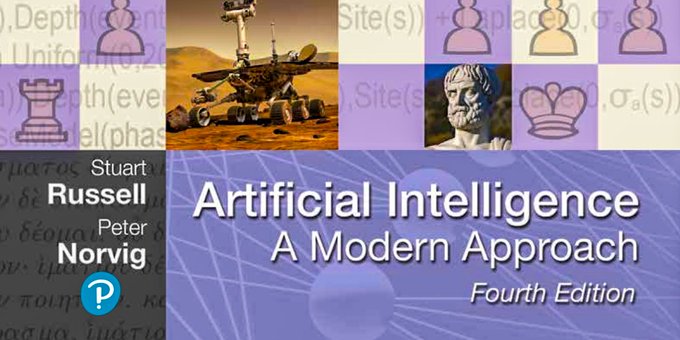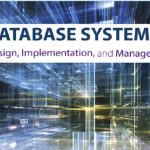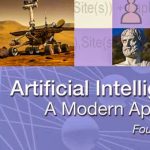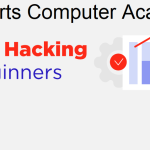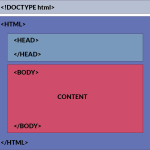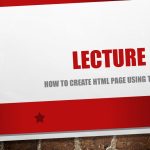| Artificial Intelligence (A Modern Approach 4th Edition) by Stuart Russell and Peter Norvig |
| Week Wise Course Breakdown |
| WEEK 01 | LECTURE 01 | 01 Introduction 1 |
| 1.1 What Is AI? 1 |
| 1.2 The Foundations of Artificial Intelligence 5 |
| 1.3 The History of Artificial Intelligence 17 |
| |
| LECTURE 02 | 1.4 The State of the Art 27 |
| 1.5 Risks and Benefits of AI 31 |
| Test 01 |
| 02 Intelligent Agents 36 |
| 2.1 Agents and Environments 36 |
| LECTURE 03 | 2.2 Good Behavior: The Concept of Rationality 39 |
| 2.3 The Nature of Environments 42 |
| 2.4 The Structure of Agents 47 |
| Test 02 |
| 03 Solving Problems by Searching 63 |
| WEEK 02 | LECTURE 04 | 3.1 Problem-Solving Agents 63 |
| 3.2 Example Problems 66 |
| 3.3 Search Algorithms 71 |
| 3.4 Uninformed Search Strategies 76 |
| |
| LECTURE 05 | 3.5 Informed (Heuristic) Search Strategies 84 |
| 3.6 Heuristic Functions 97 |
| Test 03 |
| 04 Search in Complex Environments 110 |
| 4.1 Local Search and Optimization Problems 110 |
| LECTURE 06 | 4.2 Local Search in Continuous Spaces 119 |
| 4.3 Search with Nondeterministic Actions 122 |
| 4.4 Search in Partially Observable Environments 126 |
| 4.5 Online Search Agents and Unknown Environments 134 |
| Test 04 |
| WEEK 03 | LECTURE 07 | 05 Adversarial Search and Games 146 |
| 5.1 Game Theory 146 |
| 5.2 Optimal Decisions in Games 148 |
| 5.3 Heuristic Alpha–Beta Tree Search 156 |
| |
| LECTURE 08 | 5.4 Monte Carlo Tree Search 161 |
| 5.5 Stochastic Games 164 |
| 5.6 Partially Observable Games 168 |
| 5.7 Limitations of Game Search Algorithms 173 |
| Test 05 |
| LECTURE 09 | 06 Constraint Satisfaction Problems 180 |
| 6.1 Defining Constraint Satisfaction Problems 180 |
| 6.2 Constraint Propagation: Inference in CSPs 185 |
| 6.3 Backtracking Search for CSPs 191 |
| |
| WEEK 04 | LECTURE 10 | 6.4 Local Search for CSPs 197 |
| 6.5 The Structure of Problems 199 |
| Test 06 |
| 07 Logical Agents 208 |
| 7.1 Knowledge-Based Agents 209 |
| LECTURE 11 | 7.2 The Wumpus World 210 |
| 7.3 Logic 214 |
| 7.4 Propositional Logic: A Very Simple Logic 217 |
| 7.5 Propositional Theorem Proving 222 |
| |
| LECTURE 12 | 7.6 Effective Propositional Model Checking 232 |
| 7.7 Agents Based on Propositional Logic 237 |
| Test 07 |
| 08 First-Order Logic 251 |
| 8.1 Representation Revisited 251 |
| WEEK 05 | LECTURE 13 | 8.2 Syntax and Semantics of First-Order Logic 256 |
| 8.3 Using First-Order Logic 265 |
| 8.4 Knowledge Engineering in First-Order Logic 271 |
| Test 08 |
| 09 Inference in First-Order Logic 280 |
| LECTURE 14 | 9.1 Propositional vs. First-Order Inference 280 |
| 9.2 Unification and First-Order Inference 282 |
| 9.3 Forward Chaining 286 |
| 9.4 Backward Chaining 293 |
| |
| LECTURE 15 | 9.5 Resolution 298 |
| Test 09 |
| 10 Knowledge Representation 314 |
| 10.1 Ontological Engineering 314 |
| 10.2 Categories and Objects 317 |
| WEEK 06 | LECTURE 16 | 10.3 Events 322 |
| 10.4 Mental Objects and Modal Logic 326 |
| 10.5 Reasoning Systems for Categories 329 |
| 10.6 Reasoning with Default Information 333 |
| |
| LECTURE 17 | Test 10 |
| 11 Automated Planning 344 |
| 11.1 Definition of Classical Planning 344 |
| 11.2 Algorithms for Classical Planning 348 |
| |
| LECTURE 18 | 11.3 Heuristics for Planning 353 |
| 11.4 Hierarchical Planning 356 |
| 11.5 Planning and Acting in Nondeterministic Domains 365 |
| 11.6 Time, Schedules, and Resources 374 |
| 11.7 Analysis of Planning Approaches 378 |
| WEEK 07 | LECTURE 19 | Test 11 |
| 12 Quantifying Uncertainty 385 |
| 12.1 Acting under Uncertainty 385 |
| 12.2 Basic Probability Notation 388 |
| |
| LECTURE 20 | 12.3 Inference Using Full Joint Distributions 395 |
| 12.4 Independence 397 |
| 12.5 Bayes’ Rule and Its Use 399 |
| 12.6 Naive Bayes Models 402 |
| 12.7 The Wumpus World Revisited 404 |
| LECTURE 21 | Test 12 |
| 13 Probabilistic Reasoning 412 |
| 13.1 Representing Knowledge in an Uncertain Domain 412 |
| 13.2 The Semantics of Bayesian Networks 414 |
| 13.3 Exact Inference in Bayesian Networks 427 |
| WEEK 08 | LECTURE 22 | 13.4 Approximate Inference for Bayesian Networks 435 |
| 13.5 Causal Networks 449 |
| Test 13 |
| 14 Probabilistic Reasoning over Time 461 |
| |
| LECTURE 23 | 14.1 Time and Uncertainty 461 |
| 14.2 Inference in Temporal Models 465 |
| 14.3 Hidden Markov Models 473 |
| 14.4 Kalman Filters 479 |
| |
| LECTURE 24 | 14.5 Dynamic Bayesian Networks 485 |
| Test 14 |
| 15 Probabilistic Programming 500 |
| 15.1 Relational Probability Models 501 |
| 15.2 Open-Universe Probability Models 507 |
| WEEK 09 | LECTURE 25 | 15.3 Keeping Track of a Complex World 514 |
| 15.4 Programs as Probability Models 519 |
| Test 15 |
| 16 Making Simple Decisions 528 |
| 16.1 Combining Beliefs and Desires under Uncertainty 528 |
| LECTURE 26 | 16.2 The Basis of Utility Theory 529 |
| 16.3 Utility Functions 532 |
| 16.4 Multiattribute Utility Functions 540 |
| 16.5 Decision Networks 544 |
| 16.6 The Value of Information 547 |
| LECTURE 27 | 16.7 Unknown Preferences 553 |
| Test 16 |
| 17 Making Complex Decisions 562 |
| 17.1 Sequential Decision Problems 562 |
| |
| WEEK 10 | LECTURE 28 | 17.2 Algorithms for MDPs 572 |
| 17.3 Bandit Problems 581 |
| 17.4 Partially Observable MDPs 588 |
| 17.5 Algorithms for Solving POMDPs 590 |
| Test 17 |
| LECTURE 29 | 18 Multiagent Decision Making 599 |
| 18.1 Properties of Multiagent Environments 599 |
| 18.2 Non-Cooperative Game Theory 605 |
| 18.3 Cooperative Game Theory 626 |
| |
| LECTURE 30 | 18.4 Making Collective Decisions 632 |
| Test 18 |
| 19 Learning from Examples 651 |
| 19.1 Forms of Learning 651 |
| 19.2 Supervised Learning 653 |
| WEEK 11 | LECTURE 31 | 19.3 Learning Decision Trees 657 |
| 19.4 Model Selection and Optimization 665 |
| 19.5 The Theory of Learning 672 |
| 19.6 Linear Regression and Classification 676 |
| |
| LECTURE 32 | 19.7 Nonparametric Models 686 |
| 19.8 Ensemble Learning 696 |
| 19.9 Developing Machine Learning Systems 704 |
| Test 19 |
| 20 Learning Probabilistic Models 721 |
| LECTURE 33 | 20.1 Statistical Learning 721 |
| 20.2 Learning with Complete Data 724 |
| 20.3 Learning with Hidden Variables: The EM Algorithm 737 |
| Test 20 |
| 21 Deep Learning 750 |
| WEEK 12 | LECTURE 34 | 21.1 Simple Feedforward Networks 751 |
| 21.2 Computation Graphs for Deep Learning 756 |
| 21.3 Convolutional Networks 760 |
| 21.4 Learning Algorithms 765 |
| |
| LECTURE 35 | 21.5 Generalization 768 |
| 21.6 Recurrent Neural Networks 772 |
| 21.7 Unsupervised Learning and Transfer Learning 775 |
| 21.8 Applications 782 |
| Test 21 |
| LECTURE 36 | 22 Reinforcement Learning 789 |
| 22.1 Learning from Rewards 789 |
| 22.2 Passive Reinforcement Learning 791 |
| 22.3 Active Reinforcement Learning 797 |
| |
| WEEK 13 | Lecture 37 | 22.4 Generalization in Reinforcement Learning 803 |
| 22.5 Policy Search 810 |
| 22.6 Apprenticeship and Inverse Reinforcement Learning 812 |
| 22.7 Applications of Reinforcement Learning 815 |
| Test 22 |
| LECTURE 38 | 23 Natural Language Processing 823 |
| 23.1 Language Models 823 |
| 23.2 Grammar 833 |
| 23.3 Parsing 835 |
| |
| Lecture 39 | 23.4 Augmented Grammars 841 |
| 23.5 Complications of Real Natural Language 845 |
| 23.6 Natural Language Tasks 849 |
| Test 23 |
| |
| WEEK 14 | Lecture 40 | 24 Deep Learning for Natural Language Processing 856 |
| 24.1 Word Embeddings 856 |
| 24.2 Recurrent Neural Networks for NLP 860 |
| 24.3 Sequence-to-Sequence Models 864 |
| |
| Lecture 41 | 24.4 The Transformer Architecture 868 |
| 24.5 Pretraining and Transfer Learning 871 |
| 24.6 State of the art 875 |
| Test 24 |
| 25 Computer Vision 881 |
| Lecture 42 | 25.1 Introduction 881 |
| 25.2 Image Formation 882 |
| 25.3 Simple Image Features 888 |
| 25.4 Classifying Images 895 |
| |
| WEEK 15 | Lecture 43 | 25.5 Detecting Objects 899 |
| 25.6 The 3D World 901 |
| 25.7 Using Computer Vision 906 |
| Test 25 |
| 26 Robotics 925 |
| Lecture 44 | 26.1 Robots 925 |
| 26.2 Robot Hardware 926 |
| 26.3 What kind of problem is robotics solving? 930 |
| |
| |
| Lecture 45 | 26.4 Robotic Perception 931 |
| 26.5 Planning and Control 938 |
| 26.6 Planning Uncertain Movements 956 |
| 26.7 Reinforcement Learning in Robotics 958 |
| |
| WEEK 16 | Lecture 46 | 26.8 Humans and Robots 961 |
| 26.9 Alternative Robotic Frameworks 968 |
| 26.10 Application Domains 971 |
| Test 26 |
| 27 Philosophy, Ethics, and Safety of AI 981 |
| Lecture 47 | 27.1 The Limits of AI 981 |
| 27.2 Can Machines Really Think? 984 |
| 27.3 The Ethics of AI 986 |
| Test 27 |
| |
| Lecture 48 | 28 The Future of AI 1012 |
| 28.1 AI Components 1012 |
| 28.2 AI Architectures 1018 |
| Test 28 |
| |
